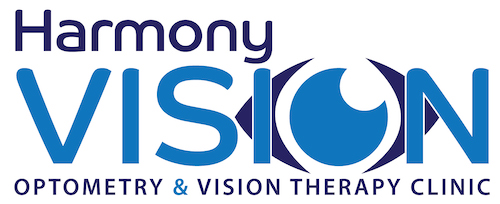Behavioural Optometry

Behavioural optometry is not a specific treatment. It is a guiding philosophy or perspective that emphasizes and champions the importance of looking at the whole visual process. So in addition to eyesight, eye health and refractive error (related to distance prescription), a lot of importance is placed on assessing and understanding functional visual skills. This is a recognition that “vision” is more than just “clear sight” or “20/20”. Functional visual abilities relate to how we use vision to interpret the environment around us, guide and direct our movements during every day tasks. This includes the quality and smoothness of eye movements, our focussing control and how well the eye team together to provide a single, clear and stable view of the world.
Functional vision problems are not always obvious in terms of signs and symptoms, when compared to “sight” problems. Diagnosis and management of functional vision problems require that the optometrist ask specific questions about performance, and to thoroughly examination many aspects of visual performance in particularly convergence (eye teaming) and accommodation (focusing).
The intention of a behavioural vision care philosophy is to highlight that:
- Good visual function or visual skill is as important to a person’s quality of life, as good sight and healthy eyes.
- Functional vision problems are common.
- Vision problems do not always cause blur or double vision. Examples of other symptoms include: headaches: eye strain: poor concentration; difficulties with attention in class; difficulties with efficient reading; excessive fatigue after computer or reading & poor comprehension, or just simply not working to potential.
- A vision problem doesn’t feel good, and and for some people may lead to frustration. This might lead to some people choosing to avoid tasks they find difficult or uncomfortable and is a good example of a change a person’s behaviour in order to cope with a vision problem.
The use of the word “behaviour” is not about “good” vs “bad” behaviour, but more like the oxford dictionary description*: “the way in which an animal or person behaves in response to a particular situation or stimulus”.
A person’s behaviour, activities and quality of life can be affected by the quality of their vision. Visual behaviour does not operate in isolation from our other senses, our daily actions, and that visual skills are gained through experience, and can be modified with vision training.
The Myth of “Perfect Sight” – Dynamic Visual Skills are Important
A sight problem is usually easily detected and treated with glasses or contact lenses, but vision is much more complex than just “sight”. You can have “perfect 20/20 sight” and still have a vision problem. While sight is important, it is a relatively static part of vision. Vision is instead a dynamic process and includes eye movements, holding fixation, shifting focus, maintaining eye alignment, and controlling attention in order to seek out and visually process and act on our world. These aspects of your vision that allow you to judge space, concentrate, maintain attention and remember things. These parts of vision require specific tests to be carried out.
Our optometrists Paul Graham, Meredith Graham & Alice Forsyth are trained and equipped to assess, treat and train all of these important areas of your vision, and understand how visual dysfunction can negatively impact on life quality.
Child and Adult Optometry on the Gold Coast
At Harmony Vision, we see regularly see patients for:
- Vision problems in people with reading difficulties, learning difficulties & attention problems;
- Adults suffering with poor concentration or longstanding visual difficulties;
- Eye turns and “lazy eyes”;
- Visual stress;
- Myopia control or “short sight” treatment options;
- Vision problems following traumatic brain injury and whiplash;
- General vision care
* http://www.oxforddictionaries.com/definition/english/behaviour
